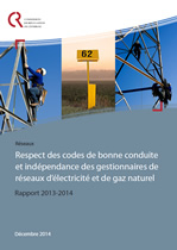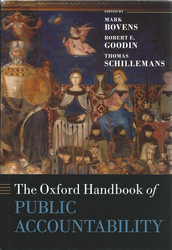Sectors

Jan. 9, 2015
Breaking news

The United Kingdom is probably country of "self-regulation", many academics devote studies, regulators praise its merits, the legislation puts it in place. This is in the area of the press. The electronic media are regulated by OFCOM, but the written press is still self-regulated. British tradition remains so.
La presse britannique, dont on connait la variété du niveau, du Daily Mirror à The Economist et à propos de laquelle les scandales sont nombreux à propos des violations de vie privée et des méthodes pour acquérir les informations, est "autorégulée".
C'est pourquoi un rapport a été publié en 2012, le rapport Leveson, lui-même continuant à recommander l'autorégulation. Sur cette recommandation, a été élaborée le Press Recognition Panel (PRP), entré dans le système juridique par une "Charte royale" le 30 octobre 2013, articulé avec un organe de supervision, le Independent Monitor for the Press (IMPRESS), créé quelques mois plus tard. On ne sait si cela avait bien fonctionné, mais le 8 septembre 2014 le premier organisme est absorbé par le second.

Jan. 8, 2015
Breaking news

The French law provides that the Commission de Régulation de l'Énergie - CRE (French Regulatory Energy Commission) publishes an annual report on compliance with codes of conduct and independence of the power transmission grid operators. In Decembre 2014, CRE has published its report on compliance with codes of conduct and independence of electricity networks and natural gas (Respect des codes de bonne conduite et indépendance des gestionnaires de réseaux d'électricité et de gaz naturel).
This particular statutory provision shows the proximity between Regulation and Governance, nearby sometimes believed limited to the sphere of banking and finance.
This is designed especially for managers of transport networks which are often subsidiaries of incumbents production and energy sales, economic and legal integration that the law does not prohibit even though it requires independence transport network managers. This independence must be de facto and not de jure, which is a higher requirement than mere legal autonomy of companies, the result of the requirements of "governance", the operator is obliged not to exercise the rights and powers its parent company status yet gives a regular basis so that the first principle of independence of the network manager is preserved.
The relationship between the controlling shareholder and its subsidiary are governed by "codes of conduct" in the mandatory order of the independence of management and decision making of the subsidiary. In a 90-page reportthe regulator sets the constraints so that this goal leads in effect on the parent company, beyond corporate law.
However, the regulator is very severe. It believes that the way in which subsidiaries present themselves to consumers mark such similarity with their parent that these third parties can't identify them as independent of them. According to the regulator, consumers therefore don't identify them as carriers or distributors of energy also offered by competitors of their parent.
Thus, the regulator considers it necessary that these subsidiaries will change their brands, logos and legal designation, eg ERDF ceases to have a name so close to EDF.
The implicit question is the legal effect of such reproaches and suggestions, if the companies aren't listening. The report discusses the prospect to bring the question before their independent body able to impose sanctions. But the case will be difficult because the principle of independence meets the principle of freedom and the terms of the interference between regulatory law and corporate law aren't yet clearly established.

Dec. 22, 2014
Breaking news

In regulating more than anywhere else, the most important is the time.
Operators can't endure uncertainty. The uncertainty of the litigation is probably the worst weapons that the controller can turn against them. So much so that The Economist, in its issue of August 30, 2014 estimated that US regulators have transformed the repression organized racket, operators to pay for stop procedures, the fact that they are right or wrong is no longer the issue.
Seen in banking and finance, seen here in telecommunications.
Then, a first calculation of the prejudice of consumers has been calculated. Each subscriber aspiring to claim a possibly unwarranted addition of about $ 10 a month for many years, the amount of damages was very high , for example in connection with a class action.
The company chose to stop there and have a settelment for $ 90 million, attributable in part to consumers, but also to different states, also paying a transactional fine to the US federal treasury.
The case is therefore financially resolved. The Federal Communications Commission commented on the agreement stating that overcharging is "a major problem" for consumers.
The case has been conducted for this operator as it has been for AT & T in October 2014, concluding a similar agreement for $ 105 millions.
____
One will rejoice if one believes that the key is to close the file and enable the company to return to its business.
The reference may be regrettable if we think:
- Punishment must remain a matter for the courts;
- The accused persons, even if they are companies, need time for the defense ;
- Regulatory Law must issue rules and interpretations of the texts, the law is depleting by agreements that close the litigation, the main objective being ... never reach the judge.

Dec. 19, 2014
Breaking news

This is currently the great battle and no one knows the outcome.
By its jugdment Grande Stevens of 4 March 2014, the European Court of Human Rights held that a state can't punish a person for a criminal penalty and administrative penalty for the same fact, criticized in market matters.
In the movement of the "dialogue of judges," the Conseil d'Etat (French State Council) asked 27 July 2014 the Conseil constitutionnel (French Constitutional Counci) l the question of compliance from this addition to the French Constitution for financial penalty in the use of public funds. By a decision of 24 October 2014, the Constitutional Council considered that this combination was consistent with the Constitution, mainly because the administrative sanction would be a "different kind" as punishment, because each pursues a different objective.
In turn, by a judgment of 17 December 2014, the Cour de cassation (French Judicial Supreme Court) decided to refer to the Constitutional Council two priority issues of constitutionality.
The presentation of the problem by the Cour de Cassation is the following. By its terms, it shows the hostility of the Court of Cassation to the doctrine hitherto developed by the State Council and the Constitutional Council.
First, the interpretation of French law provides penal proceedings against a person for facts on which it has been exonerated by the financial regulator by the Sanctions Committee thereof. This may contradict the constitutional principle of res judicata, as incurred administrative penalties are comparable to penal sanctions.
Second, this possibility could also contradict the constitutional principles of equality, necessity of criminal law and respect of non bis in idem mechanism.
Will the Constitutional Council get easier in accordance with European design without recant ? For example, it could estimate that the cumulative sentences is eligible as soon as proportionality is respected, but the extinction of a case before a judge removes the ability to exercise the other?
Or shou Law open the wound? Finally decide to open rather multiple sides bear claw blows?
The Finance Committee of the Senate works to think in a more consistent way sanctioning powers of financial regulators need. Indeed, sanctions are tools that must be thought at first hand according to the goals that must be provided in the second part in relation to other tools the financial regulator has, in the third part in relation to the purposes and powers other authorities are responsible and have (supervisory authorities, European bodies, foreign and international judges, professional authorities).
It is in this overall vision that this storm that exceeds the glass of water must be replaced.
Dec. 18, 2014
Breaking news

Virtual currency is a perfect example of the difficulties of interregulation: indeed, the bitcoins are currencies created on the Internet, usually to play games, such as poker. Thus intersect banking regulation, banking supervision, regulation and control of the game, Internet regulation itself.
____
Dec. 15, 2014
Breaking news

The European Directive of 22 October 2014 ot the European Parliament and of the Council as regard disclosure of non-financial and diversity information by certain large undertaking and groupe comes from afar.
Some present it as a step of an "irrestible rises of Corporate Social Responsabilité. This text would be a a "step forward" and a "strong signal".
It is true the Directive of the European Parliament and the Council follows a consultation conducted for several years by the European Commission on the subject of Social Responsibility. Whatever might have said the "stakeholders", the Directive contains the same lines tham the European Commission Communication of 13 April 2011, adopted on 25 October 2011 on the topic.
It is difficult today to oppose "Hard Law" and "Soft Law": Law hardens gradually. Thus, from the "communication", we went to the "resolutions", whose status remains uncertain, both a communication firmer but less binding than a law, since resolution is only for its author ... Thus Parliament in its resolutions of 6 February 2013 'resolved' to design an "inclusive" vision of the corporate action, to dance together profitability and social justice. To get by, it must suffice to say that the Social Responsibility Company is "multidimensional" ... Guidelines of the European Commission (non-binding) will explicit. Wait and see.
Following a series of obligations on information that companies must make available "to the public and authorities." Thus, companies must do the work instead of public authorities themselves. The provisions relating to non-financial information are mandatory and standardized. They are particularly demanding on the environment.
But when the text provides more substantial obligations, such as making the activity business less polluting, the Directive simply ask the member states to encourage companies to adopt "best practices" in the field. The market itself is incitative, in particular for making boards of large corporations more diverses. Because the principle is the belief that "investor access to non-financial information is a step towards achieving the goal of effective .... Europe in the use of resources," in a regulatory context of a "smart, sustainable and inclusive" growth".
Dec. 10, 2014
Sectorial Analysis

Constitutional Law will have an increasingly important role to play in regulatory Law. This is especially true since the State Council uses its power to filter itself become a sort of Constitutional Court or maybe a Supreme Court.
One can think so reading the UBS decision on the 5th of November 2014.
Indeed, to refuse to transmit to the Conseil constitutionnel (French Constitutional Council) the priority question of constitutionality formulated by UBS, the French Council of State gives what it believes to be the correct interpretation of the constitutional principle of legality of offenses and penalties in banking regulatory Law.
So to say there is no "question", the Conseil d'État says there is no "problem" because, through the interpretation it gives, the provisions of the Code Monétaire et Financier offers to the Supervisory Authority, the Autorité de Contrôle Prudentiel et de Résolution (ACPR), the power to sanction the bank for having not properly implemented its internal control, comply with the constitutional principle of legality of offenses and penalties, which is applicable in administrative repression.
But because to estimate that there is no "question", it must be said that there is no "problem", it is assumed that the High Administrative Court has acted as Constitutional Court.
We must take note. Is this really what the Constituent wanted by instituting a filter system by the constitutional law of the 23rd July 2008 establishing the priority question on constitutionality? Indeed, in this very sensitive and decisive question of repression in banking and finance, is it not at least to the French Constitutional Council itself to say the authoritative interpretation to remember that the constitutional text it is the guardian?
Dec. 8, 2014
Breaking news

The Conseil d'État (French State Council)l issued a ruling Sept. 19, 2014, Agence pour l'enseignement français à l'étranger, which does not involve a regulated sector but is very instructive for all of them.
Indeed, the term "guidelines" is common in how each and designates certain documents prepared by the regulatory authorities. These give themselves this appellation to documents made ex ante to give operators the "outline" of the future action of the regulator. Thus, the "guidelines" would produce legal certainty while maintaining flexibility, since in the future the authority will continue to set its position on a case by case basis.
This convinced the Conseil d'État, which expressed his support for the "droit souple (soft law)" in its annual report in 2013.
Now comes the case: it was necessary that the "hard right" come bless the "soft law".
In this case, was challenged before the administrative judge an "instruction" from this Agency for French Teaching Abroad for the "consideration of the financial situation of the parents" seeking a scholarship to the child. A local agency for awarding grants had rejected a request no meeting the criteria developed in the statement. Parents have acted appeal for abuse of power. They both lost before the Cour administrative d'appel de Paris (Administrative Court of Pari) that before the Conseil d'État.
However, the Council recognizes that the Agence pour l'enseignement français à l'étranger has no regulatory power. But the judgement takes in considération that:"l'instruction en cause a énoncé, à l'intention des commissions locales, des lignes directrices, sans fixer de normes à caractère général qui se serait imposée de matière impérative à ces commissions"!footnote-8 .
Triumph of soft law!
Thus, organizations, "agencies", may take "general guidelines" here which do not contain any threshold and generating no rights, on which the commission take real decisions. These are based on the first document, but because of the "flexibility" of it, the one whose solution is affected by the particular decision does'not have the right to appeal.
All the beauty and effectiveness of "soft law". The judge, after having boasted, now offers it royal way.
Dec. 2, 2014
Breaking news

Internet requires regulation. It does not works solely because of the moral sense of the users or through vigilance of companies that develop on it.
The regulator of the virtual space can be imagined, or a regulator of the various possible activities that develop there, regulators then deploying their powers as when the activity takes place on the Internet. Thus, it is the case of advertising.
In the UK, the Advertising Standard Authority (ASA) monitors the advertising business, also on the Internet.
Its decision of 26 November 2014 is remarkable for several reasons. It punishes two non-professionals, namely two users Youtube tool. But in communication, non-market entrepreneurs sometimes have more weight than businesses. But on the Internet, users can sponsor their free activity, which is to monetize. In this case, the two had played on their Youtube channel short films that were advertisements.
The complaint made against them is that Youtube is not a support on which those who put content make it to commercial purposes. And other users could not understand they watched the advertisement and not a distraction film or information.
The Regulator imposes a sanction against Internet users not because they did a promotional contract with the company, in this case Cadbury wich wants to promote Oreo cookies. By this contract, the entreprisee via the famous Internet users can reach consumers, which is permissible. They are punished because they have deceived the confidence of the other Internet users who can't imagine being the target of an advertisement. The fact that it is people with many fans on youtube counted in the severity of the Regulator. Indeed, they have more than 2 million subscribers. More than 1.3 million have seen the offending video. Only 243 people have not loved it.
Dec. 1, 2014
Thesaurus : Doctrine

Complete Reference : BOVENS, Mark, GOODIN Robert E., SCHILLEMANS, Thomas (ed.), The Oxford Handbook of Public Accountability, Oxford University Press, 2014, 682 p.
Read the presentation of the Collin Scott's contribution : Independent Regulators.
Dec. 1, 2014
Breaking news

However, France and Germany have asked 27 November 2014 to the European Commission to take steps against those who hold the platforms on the Internet, including search engines. Everyone knows that this is the famous "GAFA" (Google, Apple, Facebook and Amazon).
It seems that the EU institutions fit, since the European Parliament voted on November 27 a text saying that it could ban these companies to monetize their platform activities themselves.
By their regulatory perspectives, Europe gets "retrograde" against the US dynamism?
At first glance, one might say. But it may be that these companies have become "critical", they take the heart of the digital economy, or even the knowledge economy and social cohesion. In such cases, the regulation of these objective phenomena justifies intervene directly in companies in which the social group comes to identify itself. If the company comes to stifle others, it is not that it stifles competition only, but innovation and free expression.
Then pass the mere vigilance competition law instruments of regulation, common in banking and financial law, such as transparency requirements.
This demonstrates Regulation and Supervision meet when companies become crucial.
Dec. 1, 2014
Thesaurus : Doctrine
Complete reference : Malecki, C., Publication de la directive RSE ou comment faire confiance à la gouvernance d'entreprise durable, Bull. Joly Société, 1st Dec. 2014, p.732 s.
Nov. 29, 2014
Thesaurus : Doctrine
Référence complète : Giraud, A., Exégèse de l'arrêt Groupement des Cartes Bancaires, RLDA, n°98, nov.2014, p.43-48.
Lire une présentation de l'arrêt et des conclusions de l'avocat général.
Les étudiants de Sciences po peuvent accéder à l'article lui-même par le Drive de Sciences po.
L'auteur rappelle ce cas dans lesquelles les banques membres du GIE ont été condamnées par la Commission européenne, en ce que les nouvelles règles adoptées au sein de ce GIE de gestion du mécanisme des cartes bancaires, qualifiées de "régulation" avaient un "objet anticoncurrentiel", ce qui suffisait à justifier la condamnation des opérateurs (décision de la Commission du 17 octobre 2007). Le Tribunal de Première Instance a confirmé cette analyse par un arrêt du 29 novembre 2012, estimant que la condamnation était fondée, puisque par sa nature un tel accord était "susceptible de produire des effets négatifs sur la concurrence".
Cela est invalidé par la Cour de justice, qui casse l'arrêt et renvoie le cas devant le Tribunal de première instance car le fait que l'accord soit "susceptible d'affecter la concurrence" ne le rend pas "anticoncurrentiel par objet".
Nov. 5, 2014
Thesaurus : Doctrine
Référence complète : Entretien avec Jacky Richard, rapporteur général de la secteur du rapport et des études du Conseil d'État, et Laurent Cytermann, rapporteur général adjoint, "Et si le droit souple était l'avenir du droit dur ?", Les Petites Affiches, 5 nov. 2013, p.4-8.
____
Les étudiants de Sciences Po peuvent lire l'article par le Drive de Sciences Po (dossier "MAFR - Régulation").
____
Oct. 24, 2014
Thesaurus : 01. French constitutional Council
Oct. 22, 2014
Thesaurus : 02. European Union
Sept. 23, 2014
Thesaurus : Doctrine
Complete reference : Racine, Jean-Baptiste, Remarques sur la distinction entre les droits et les libertés, LPA, 23 septembre 2014, p.7-14.
___
Sciences Po students can access the article on the Sciences Po Drive, in the folders "MAFR - Grandes Questions du Droit - PrincipalLaw Issues" or "MAFR - Regulation".
Sept. 19, 2014
Thesaurus : 03. French Council of State
